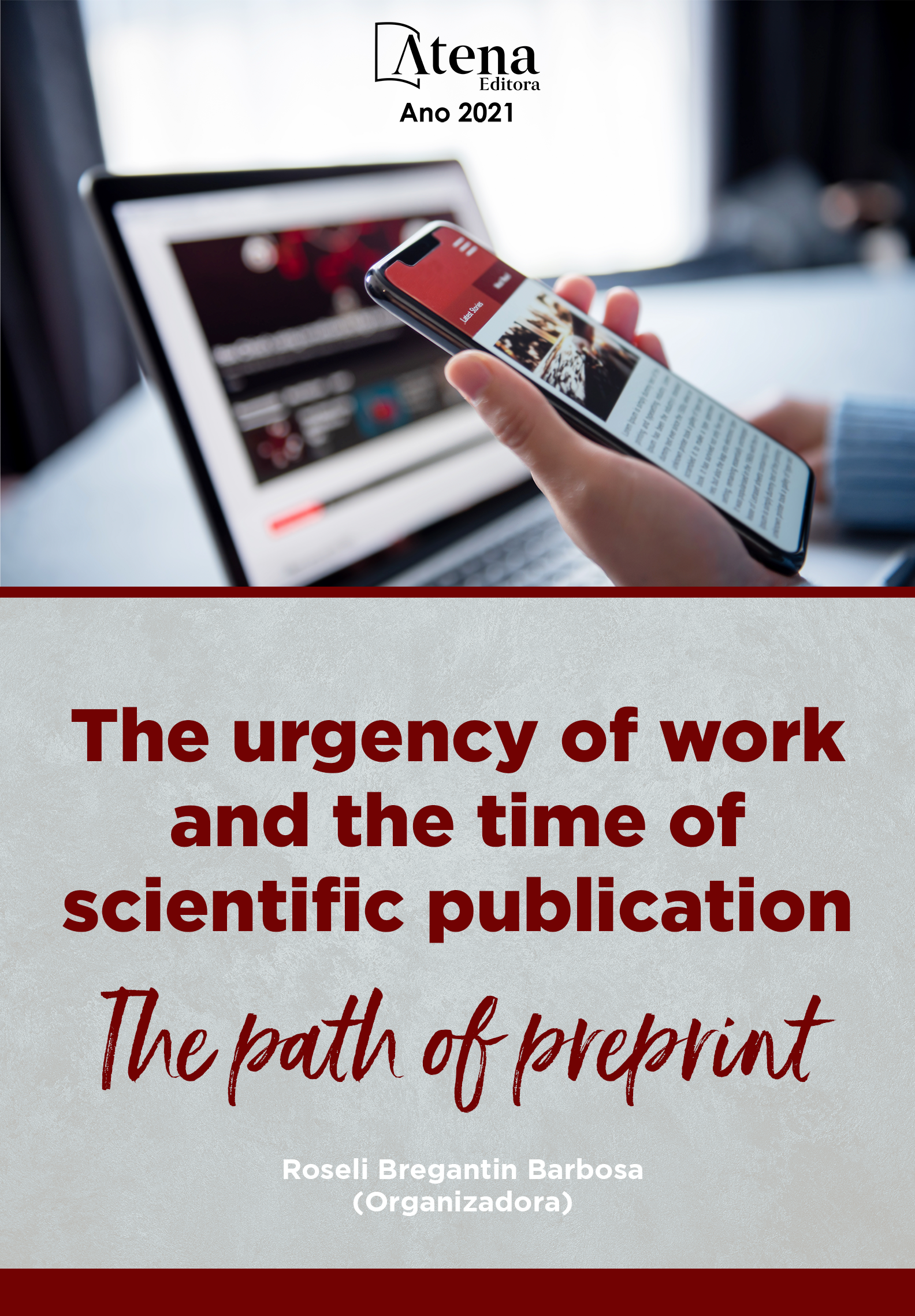
The urgency of work and the time of scientific publication, the path of preprint
Publicado em 15 de junho de 2021.
Preprint as an academic publication.
The book “The urgency of work and the time of scientific publication, the path of preprint” was born at a time of increasing demand from academia and society for greater access to the process of building knowledge and agility in the publication of consolidated scientific knowledge. To a large extent, it represents the result of the experience of a Brazilian researcher in training for an international PhD in a visit to Portugal during a Covid-19 lockdown. The guiding thread of the collection that makes up this book is the deregulation of work, remote work and sex work, directly linked to the work platform phenomenon. In these articles, several issues and some relevant results for research in the field of work and scientific research are presented in English (translations from Portuguese).
In the face of the rapid changes that occurred at the beginning of 2020, and that are still occurring due to the ongoing pandemic, society calls for quick scientific responses.
However, researchers must deal with the slowness of the analysis and selection procedure in publishing their research in specialized scientific journals and magazines, in addition to the serious difficulties imposed on their daily routines due to health protocols.
The pandemic posed, among so many challenges, the questioning of the canonical form of publication, the procedures of which confront the need for quick responses of scientific production, similar to the dissemination of experimental studies. Preprint seems to emerge as a means of responding to society, at the speed that social changes demand, and, more than that, it proves to be an effective methodological tool in the development of academic writing and in broadening the debate among researchers interested in the same theme. It is especially important because it allows the same article to be published in multiple languages and opens up a broader debate.
Excellence in scientific research depends on good academic writing and the evolution in academic writing is achieved through the act of writing and rewriting. When poorly written, excellent research can be wasted. But, how do we know if we are writing well? Only those who can make themselves understood through writing know how to write well, and this is only possible when the text is read. Being read before being published is essential to develop good writing skills. In academia it is possible to be read in face-to-face assessments, research groups, seminars and congresses, however, these readings have limited access to those registered, or to participants.
Preprint increases access to academic reading by making the texts relating to ongoing research available to a greater number of researchers and interested parties. These papers can receive criticism, suggestions and changes at any time, and have guaranteed registration in the DOI system, which protects them against plagiarism.
Is preprint a platform for scientific publication? It might be. However, as it is not about providing onerous services and is not aimed at profit, this platform does not offer the harms of the already known work platforms, accused of overexploitation of work. The preprint platform, on the contrary, offers subsidies to the work of publishers of scientific publication vehicles, providing them with one more selection criterion, the impact of research.
The article “Covid-19 and doctoral research in Brazil and Portugal: who pays the bill for isolation and remote work in research?” which closes this collection, was published in Fennia journal, from Finland, and is the result of theoretical and methodological debates raised in the articles made available in pre-printed format, on a specialized platform. The publication of this article in an international scientific vehicle of excellence confirms that preprint is a valid methodological tool.
As the author’s advisor and co-author of one of the preprints published here, I recommend reading the articles contained in this collection. Each of them brings useful experiences, information and analysis, both for the academic community and for society in general - since this tool can also be used in the development of several projects, mainly in the social area.
Maria Tarcisa Silva Bega
Degree in Social Sciences from UFPR (Federal University of Paraná), holds a Masters and a PhD in Sociology from USP (University of São Paulo). She conducts research on the following themes: Paraná, Curitiba, Youth, Citizenship, Social Policies and Intellectual Paths. E-mail: [email protected]. http://lattes.cnpq.br/3581133293519315.
The urgency of work and the time of scientific publication, the path of preprint
-
DOI: 10.22533/at.ed.418211506
-
ISBN: 978-65-5983-141-8
-
Palavras-chave: 1. Pandemia. 2. COVID-19. 3. Regulation. I. Bregantin Barbosa, R. (Organizadora). II. Título.
-
Ano: 2021
Artigos
- 1 Regulation and deregulation of work: sex work, pandemic, crisis, exclusion and overcoming strategies
- 2 COLLECTIVE ACTION FOR LABOR RIGHTS AND THE STRUGGLE FOR LGBTQ RECOGNITION IN BRAZIL: TIPPING POINTS AND REFLECTION
- 3 CAMGIRL AND THE UBERIZATION OF SEX WORK ON THE INTERNET IN BRAZIL
- 4 COVID-19 AND DOCTORAL RESEARCH IN BRAZIL AND PORTUGAL: WHO PAYS THE BILL FOR CONFINEMENT AND REMOTE WORK IN RESEARCH?
- Preface
- Introdution


